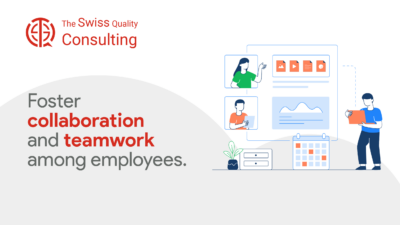Building a Culture of Data Security and Privacy Compliance
The Importance of Promoting Data Protection Awareness
Promoting data protection awareness among employees and stakeholders is crucial for organizations aiming to maintain robust data security and comply with privacy regulations. In the rapidly evolving business environments of Saudi Arabia and the UAE, where technological advancements are embraced, ensuring that all members of an organization understand the significance of data protection is essential. Data breaches can lead to significant financial losses and damage to an organization’s reputation, making it imperative to foster a culture of data security.
For business executives and mid-level managers in Riyadh and Dubai, promoting data protection awareness starts with clear communication about the importance of data security and privacy compliance. This involves educating employees about the potential risks associated with data breaches and the impact these incidents can have on the organization and its clients. By highlighting real-world examples and emphasizing the importance of safeguarding personal information, leaders can motivate employees to take data protection seriously.
Additionally, promoting data protection awareness involves providing comprehensive training programs that equip employees with the knowledge and skills needed to handle data securely. These programs should cover topics such as recognizing phishing attempts, using strong passwords, and securely storing sensitive information. For entrepreneurs and leaders in the UAE and Saudi Arabia, investing in regular training sessions ensures that employees remain vigilant and informed about best practices in data protection.
Implementing Effective Training Programs
Effective training programs are a cornerstone of promoting data protection awareness within an organization. These programs should be tailored to the specific needs of the organization and its employees, ensuring that the content is relevant and engaging. For businesses in Saudi Arabia and the UAE, this means considering the diverse backgrounds and technological proficiency levels of their workforce when designing training modules.
Interactive training sessions, such as workshops and simulations, can be particularly effective in engaging employees and reinforcing key concepts. For example, conducting a phishing simulation can help employees recognize and respond to potential phishing attempts in a safe and controlled environment. By providing hands-on experiences, organizations can ensure that employees understand how to apply data protection principles in their daily tasks.
Furthermore, leveraging modern technologies such as artificial intelligence and blockchain can enhance the effectiveness of training programs. AI-powered training platforms can deliver personalized learning experiences, adapting the content to meet the needs of individual employees. Blockchain can be used to create secure and verifiable records of training completion, ensuring accountability and compliance. In the tech-forward regions of Riyadh and Dubai, integrating these technologies into training programs can provide a competitive edge in promoting data protection awareness.
Engaging Stakeholders in Data Protection Initiatives
Engaging stakeholders in data protection initiatives is essential for creating a comprehensive and cohesive approach to data security. This involves not only educating employees but also involving clients, partners, and other external stakeholders in data protection efforts. For business leaders in Saudi Arabia and the UAE, building strong relationships with stakeholders based on trust and transparency is key to successful data protection initiatives.
One effective strategy is to develop clear and concise data protection policies and communicate these policies to all stakeholders. By outlining the organization’s commitment to data security and the measures in place to protect personal information, businesses can reassure stakeholders that their data is being handled responsibly. Additionally, providing stakeholders with resources and guidelines on data protection best practices can help them contribute to the overall security of the organization’s data ecosystem.
Regularly updating stakeholders on data protection initiatives and achievements can also foster a sense of shared responsibility and collaboration. For example, organizations can host webinars or publish newsletters that highlight recent improvements in data security and provide tips for maintaining data protection. By keeping stakeholders informed and engaged, businesses in Riyadh and Dubai can create a supportive network that enhances their overall data protection efforts.
Best Practices for Sustaining Data Protection Awareness
Creating a Data Protection Culture
Creating a culture of data protection within an organization is essential for sustaining long-term awareness and compliance. This involves embedding data protection principles into the organization’s values, policies, and daily operations. For business executives in Saudi Arabia and the UAE, leading by example and demonstrating a commitment to data security is crucial for fostering a data protection culture.
One way to create a data protection culture is to establish a dedicated Data Protection Officer (DPO) or team responsible for overseeing data security initiatives. The DPO can provide guidance, conduct regular audits, and ensure that data protection measures are consistently applied across the organization. By appointing a knowledgeable and dedicated individual or team, businesses can ensure that data protection remains a top priority.
Additionally, encouraging open communication about data protection can help reinforce its importance. Creating forums for employees to discuss data security concerns, share best practices, and ask questions can foster a collaborative approach to data protection. In the dynamic business environments of Riyadh and Dubai, promoting open communication can help organizations stay ahead of emerging threats and maintain a strong focus on data security.
Utilizing Modern Technologies to Enhance Data Protection
Leveraging modern technologies such as AI, blockchain, and the metaverse can significantly enhance data protection efforts. AI can be used to automate data security processes, detect anomalies, and respond to potential threats in real-time. For example, AI algorithms can analyze patterns of behavior to identify and mitigate insider threats, ensuring that sensitive information is protected from unauthorized access.
Blockchain technology offers a decentralized and transparent approach to data management, providing a secure platform for storing and verifying data. By using blockchain, organizations can create immutable records of data transactions, ensuring that personal information is handled securely and compliantly. In regions like Riyadh and Dubai, where technological innovation is a key driver of economic growth, adopting blockchain for data protection can enhance trust and transparency.
The metaverse, a virtual environment that enables immersive interactions, also presents opportunities for enhancing data protection. Organizations can use the metaverse to create virtual training environments, conduct security simulations, and engage employees in interactive data protection exercises. By integrating these technologies into their data protection strategies, businesses in Saudi Arabia and the UAE can stay at the forefront of innovation and ensure robust data security.
Continuous Improvement and Adaptation
Continuous improvement and adaptation are essential for maintaining effective data protection measures. The rapidly changing technological landscape requires organizations to regularly review and update their data protection strategies to address new challenges and emerging threats. For business leaders in Saudi Arabia and the UAE, staying informed about the latest developments in data security is crucial for maintaining compliance and protecting personal information.
Regular audits and assessments can help identify areas for improvement and ensure that data protection measures are aligned with regulatory requirements. By conducting internal and external audits, organizations can evaluate their data security practices, identify vulnerabilities, and implement corrective actions. Additionally, staying engaged with industry forums, attending conferences, and participating in professional networks can provide valuable insights into best practices and emerging trends in data protection.
By fostering a culture of continuous improvement, organizations can ensure that their data protection measures remain effective and resilient. This proactive approach not only enhances data security but also demonstrates a commitment to protecting individuals’ rights and maintaining regulatory compliance.
Conclusion: Achieving Success Through Data Protection Awareness
Promoting data protection awareness among employees and stakeholders is essential for maintaining robust data security and compliance with privacy regulations. By implementing effective training programs, engaging stakeholders, and leveraging modern technologies, organizations in Saudi Arabia and the UAE can enhance their data protection efforts and build a culture of security.
Creating a data protection culture, utilizing advanced technologies, and continuously improving data security measures are key strategies for achieving long-term success. By prioritizing data protection and fostering a shared commitment to safeguarding personal information, businesses can build trust with their customers and stakeholders, ensuring sustained growth and success in the digital age.
—
#PromotingDataProtectionAwareness, #DataSecurity, #EmployeeTraining, #PrivacyCompliance, #ArtificialIntelligence, #Blockchain, #Metaverse, #GenerativeAI, #ModernTechnology, #ExecutiveCoaching, #BusinessSuccess, #LeadershipSkills, #ProjectManagement, #SaudiArabia, #UAE, #Riyadh, #Dubai























